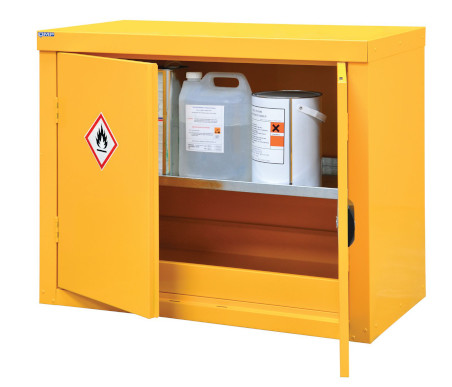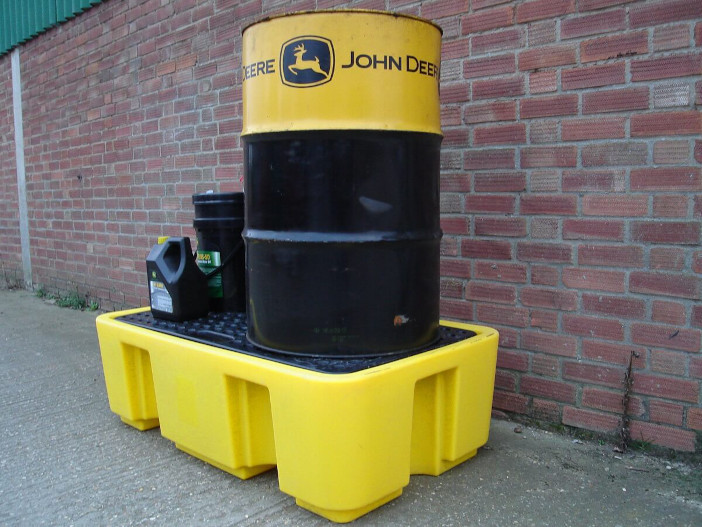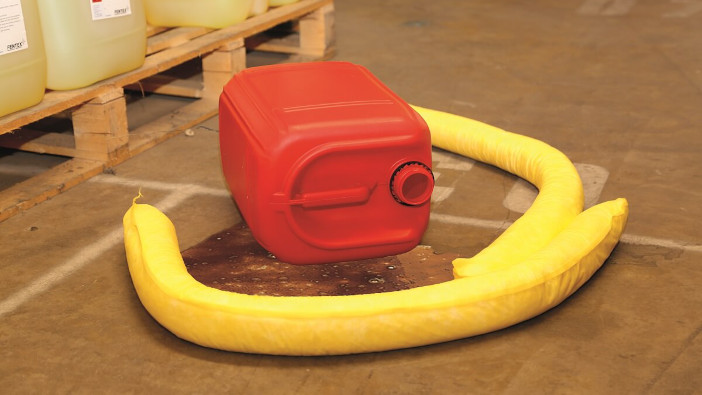Anyone who works on a farm knows it can be a dangerous job. In fact, around 4% of all workers in the agricultural sector sustain a non-fatal injury every year, compared with the 1.7% average for all industries combined. This makes it statistically the most dangerous of all the major industries, so all steps must be taken to reduce the risk to workers.
Whilst most non-fatal accidents are caused by slips, trips and falls, contact with pesticides and agrochemicals should also be avoided. Some exposure is hard to avoid, such as during application in the fields, but incorrect storage could lead to accidents or leaks of acutely toxic pesticides. The result is a severe risk to health and the environment. One tool to help ensure chemicals are stored safely is COSHH cabinets.
COSHH compliant storage cabinets

COSHH is a law regarding the control of substances that are hazardous to health. Amongst the many areas it covers is storage, and the HSE provides guidance as to what consists of appropriate storage. One of the main points is that access to chemicals should be restricted, which means using a strong and secure cabinet is a must. Ensure any storage cabinets are lockable and that only trained or qualified personnel have access to a key.
A standard lockable metal cabinet isn’t likely to be sufficient, however, as most aren’t designed to contain any leaking containers. To comply with COSHH, your storage cabinet must have an impervious floor resistant to stored chemicals. The best solution is a specially designed COSHH cabinet with a liquid-tight welded sump at the base and internal shelves with lipped edges. These prevent spills or leaking containers from contaminating the surrounding environment. For added safety, line the bottom of your cabinets with chemical-safe absorbent pads or sheets. These specially designed materials will absorb chemicals, stopping them from spreading and making cleanups easy.
Additional considerations include using vented cabinets if stored chemicals release fumes to prevent pressure build-up. The cabinet should also be large enough to store containers with space between them, allowing them to be accessed easily without knocking over other containers. Finally, each cabinet should be affixed with labels to identify the substances; most COSHH cabinets on the market will include labels for this reason.
Storage of drums and large containers

The scale of chemicals and other substances used on a farm means that, in some cases, standard COSHH cabinets won’t be a practical or cost-effective way to store them. Using a bunded spill pallet is highly recommended if chemicals, oils, and other liquids are stored in a warehouse or outdoors. Spill Pallets raise the storage drums or containers above a sump or bund that will safely contain any leaks. The plastic materials used in their construction are resistant to chemicals, making them safe to use with most liquids. In addition, most spill pallets have a removable grid, allowing them to be easily cleaned when needed.
Most spill pallets can safely contain 110% of the total amount stored on the pallet, preventing a leak from spreading onto the surrounding floors even if the containers fail and lose their entire contents. For this reason, it’s essential to be aware of your spill pallet’s intended weight and volume capacity to avoid overloading.
Dealing with chemical spills
Even when following all the rules and taking great care, accidents can happen. Any spills must be dealt with quickly and safely, especially when chemicals are involved. Lining your cabinets with absorbent materials can make it easier to handle leaks within a cabinet, as previously described. Chemical absorbent pads are readily available from numerous suppliers online and can be ordered in packs of pre-cut sheets or from a roll. Not all absorbents are suitable for use with chemicals, so ensure you use yellow-coloured materials to distinguish them from unsuitable products which are grey or white.
It is highly recommended to keep Spill Kits on site to deal with spills that happen outside the confines of a cabinet. Spill Kits are ready-made packs of absorbent materials that can be deployed rapidly in a spill emergency, like the Fire Extinguishers of spill control. Each kit contains everything needed to control a spill, including socks to contain the spill and prevent further spreading and absorbent sheets to soak up the fluids. Waste bags are also included for safer disposal, and all the contents are stored in a plastic bin or carry bag for smaller kits. Spill Kits are graded by absorbent capacity, with kits starting at 10 litres for minor spills up to 240 litres for larger storage areas and warehouses.
For further information and resources on COSHH compliance, visit the HSE website: www.hse.gov.uk.


